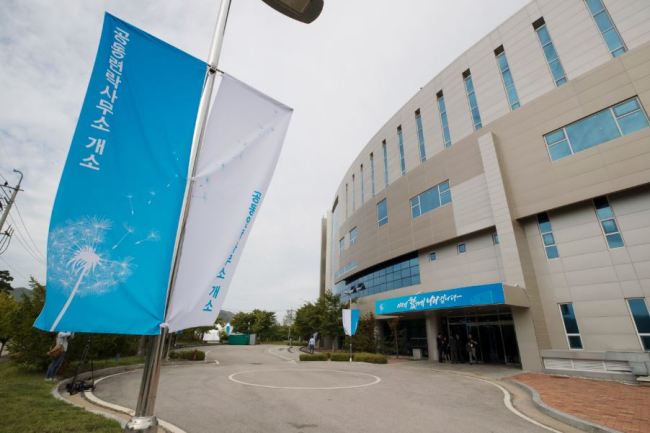North Korea may be trying a new tack in diplomatic relations, raising questions for the future of inter-Korean relations and denuclearization.
On Friday, North Korean officials at the inter-Korean liaison office in Kaesong withdrew from the facility, stating only that they were following orders from higher up. The North also stated that it will not concern itself with South Korean officials remaining at the facility, and that practical matters will be dealt with at a later date.
The move came amid speculation that Pyongyang is seeking to tighten cooperation with China and Russia in a bid to increase its leverage in future dealings with the US.
On Sunday, Kim Chang-son, chief secretary of the North Korean Secretariat of the State Affairs Commission and a longtime aide of North Korean leader Kim Jong-un’s family, wrapped up a five-day visit to Moscow.
With Kim Chang-son having been responsible for hammering out the details of Kim Jong-un’s visits to Singapore and Vietnam, his visit to Moscow has fueled further speculation about an impending Moscow-Pyongyang summit.
While nothing remains confirmed, it has been suggested that the summit could take place as early as mid-April.

Joint inter-Korean liaison office in Kaesong. Joint Press Corps
Kim Chang-son’s visit to Russia followed consecutive reports from the North’s state media highlighting Pyongyang-Moscow relations.
Last week, the North’s official newspaper, the Rodong Sinmun, said the two countries shared “the common goal of resisting interference and pressure from the outside, and to protect the autonomy of the country.”
It has also been reported that the North’s ambassadors to China and Russia have been given orders to strengthen cooperation with its allies in the wake of the failed summit with the US in Hanoi.
Recent developments have prompted experts to warn of the possibility of North Korea reverting to a hard-line stance.
“It can be assumed that the North decided to call back officials to pressure the US as Chairman Kim Jong-un seriously considered whether to continue denuclearization negotiations with the US,” Cheong Seong-Chang, Sejong Institute vice president of research planning, said in an emailed statement.
“(The decision) could be a sign that the North is seeking a change in foreign policy and strategy for denuclearization negotiations,” Cheong said, adding that the possibility of North Korea issuing a hard-line statement cannot be ruled out.
He went on to call on the Seoul government to respond quickly, including arranging an inter-Korean summit, while warning against “overreacting” to moderate pressure from Pyongyang.
While Pyongyang’s decision on the inter-Korean liaison office could be considered minor in nature, its leadership appears to be under much greater pressure.
In an editorial on Thursday, the Rodong Sinmun described the current situation as “the most severe ordeal in the history of the republic,” prompting watchers to speculate that Pyongyang’s leadership considers its economic situation a threat to the survival of the regime.
While the US maintains sanctions on the North, President Donald Trump appears cautious about raising the pressure further.
In a Twitter post on Friday, Trump claimed that he had ordered the US Treasury to withdraw further sanctions against the regime, only a day after additional sanctions were announced.
For its part, South Korea is taking a cautious approach.
The presidential office has yet to issue an official statement on the matter, despite having spearheaded the progress on North Korea-related matters, saying only that a National Security Council meeting was convened on Friday to discuss the matter.
On Saturday, Vice Minister of Unification Chun Hae-sung, who doubles as the South Korean chief of the liaison office, held a meeting with ranking ministry officials.
At the meeting, the ministry reviewed matters concerning the safety of the South Korean officials at the office, who will continue to remain there for the time being. It also reaffirmed that the government will maintain its course on North Korea issues.
South Korea’s conservatives, meanwhile, have described the North’s withdrawal from the liaison office as the “terrible result” of the Moon Jae-in administration having been fooled by Pyongyang.
“The government raised concerns for the people, having been dragged around by North Korea, taking a different route to the US and international society,” Hwang Kyo-ahn, the chief of the main opposition Liberty Korea Party, said Saturday, adding that the development stems from issues surrounding North Korea’s nuclear weapons.
“The Moon Jae-in administration must shed its illusions about North Korea and work with international society for the denuclearization of North Korea.”
Hwang’s comments echo conservative experts’ take on the matter.
“(Seoul and its allies) must enter a drawn-out battle. Establishing peace, permanent peace (on the Korean Peninsula) in the short term is for North Korea and (Moon’s) supporters, as these goals are unrealistic,” said Konyang University professor emeritus Kim Tae-woo, former head of the Korea Institute for National Unification.
“In the end, (the North Korea issue) will advance slowly when a balance between what is given and taken is achieved, so that matter must be considered in a very long term.”
By Choi He-suk (
cheesuk@heraldcorp.com)






